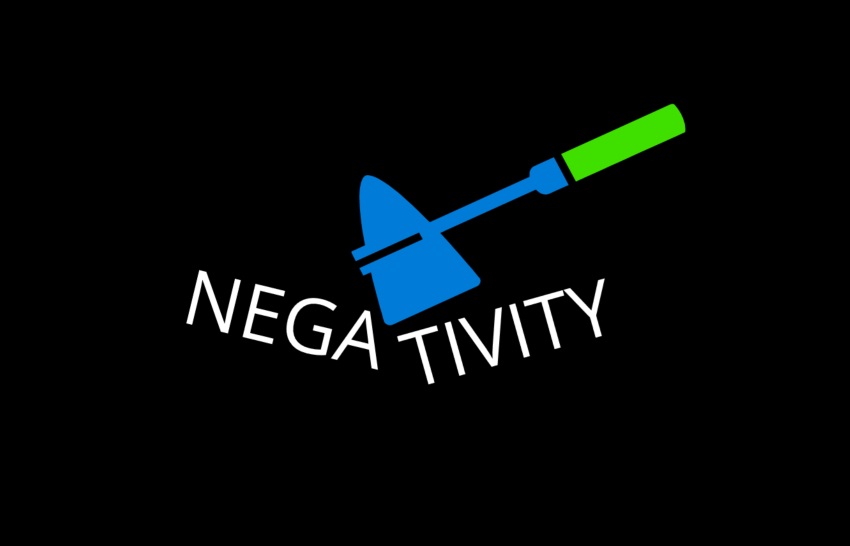As someone who’s spent a lot of time in or conducting brainstorms, here are the most common reasons why we are negative.
(Frankly, some of these people don’t even need a brainstorm to let their negativity loose.)
Psychologists suggest negativity comes from pessimism, anxiety, depression, distrust, a lack of feeling respected among others.
This constant angst is also easily passed from one person to another: negativity can drag down everyone in the room.

So, why are we negative?
Considering our society at this point, I realise this could a longer list. I’m also not a psychologist, so I’ll focus this article on why people are negative in brainstorming.
1. We’re impatient.
In the immortal words of a former colleague Cindy who continually argued with me about the validity of brainstorming, she once told me:
“You’re wasting my time coming up with ideas which won’t work! Give me the Big Idea now.”
Impatience is usually caused by three things: stress, fear or worry.
In her case (which included her team), she tapped into all three. They would spend H.O.U.R.S. discussing the strategic elements of the proposal, such as the objectives, problems, resources, messaging, budgets blah blah. (Notice they are all very specific, tangible things.)
Because they spent so much time on the ‘up-front’ aspects of the proposal, we had very little (if any) time for the creative elements: the ideas. And, opposed to the rational elements of the proposal, the ideas – at first – are the intangible, emotional aspects. Ideas are something that cannot be controlled, especially during a brainstorming. The team’s impatience led to very loud flare-ups and passive-aggressive behaviours, all of which made its way into a mediocre proposal.
While it’s not acceptable, it’s also understandable. Creativity is largely an invisible task. It doesn’t look like ‘real work’ to many people. After all, isn’t it a common myth that an idea appears after a blinding flash of inspiration? As if by magic?
One time, I pointed out to the team that we didn’t win assignments with a great strategy but a lousy idea. That moment also made me realise that I was waiting on the “strategy” part of the proposal to be finished. I was part of the problem. From that point forward, the creative aspect began to work in parallel. The key was not picking the best solutions until the strategy had formed to give us direction on which ideas were ‘best.’
2. We’re conditioned to be negative.
Perhaps you’ve heard this well-known statistic. The average human being has 60,000 thoughts a day. Almost 90% of those thoughts are the same ones you had yesterday. And worse, 80% are negative.
Note: I’ll just leave this here: Science Says There’s a Simple Reason You Keep Thinking Negative Thoughts All Day, an interesting article from Inc. magazine about the effect of cortisol on negative thinking and the author’s suggestion on ‘bounce thinking.’
While I can’t verfify with 100% accuracy the research nor its conclusions, there is plenty of documented evidence suggesting our negativity is built up through formal education. For most subjects, we’re taught to learn one common answer through memorization, or to learn a specific yet repetitive way to do a task. School rarely asks us to dissect and examine something in more detail to improve something. What element could be made better?
In other words, we are taught there’s only one acceptable answer to every questions. We’re taught to analyse but not enhance. That’s the opposite philosophy of creativity: to create as many possible solutions to solve a need or problem.
3. Negativity is a cultural characteristic.
We often blame our negativity on our culture, specifically how it influences how we live, work and think. We define ourselves, or are defined, by ‘society.’ That could mean our nationality, community or workplace.
To change or go against the common direction takes courage since – at many points in history – being, acting or thinking different has been wrong in virtually every country on Earth.
It’s understandable that it may be one of the most difficult influences to overcome, but it’s certainly not a reason to stay the same. In fact, the most successful companies – people, even – are the ones who are constantly evolving and changing.
4. Negativity is an unconscious way to avoid work or change. For others, negativity is simply fun.
Perhaps an ugly reality, but there’s a kernel of truth to the thought that condemning something might be a way to avoid doing something. This could be a changing environment or situation. It could even be to avoid any personal change.
The psychological conversation goes something like this.
- If I am negative, the idea is killed.
- Nothing happens, so I don’t have to do anything.
- I don’t have to change the status quo.
- I don’t have to work harder.
- I don’t have to challenge myself.
Negativity is also easy to rationalize, especially when it makes us feel better about ourselves.
- I help others by correcting their mistakes.
- I clarify the group’s confusion by dominating all other opinions with my own.
- I mentor others by demonstrating how smart I am by pointing out why a particular idea won’t work.
A friend pointed out these statements mean we don’t have to lift a finger, but we can also feel good about ourselves in the process!
In the end, does negativity ever have any positive value in creativity? No.
Unlike bad ideas – which can be adapted to create good ideas – negativity without constructive direction is simply destructive.
I’ve found that the only people who will tell you that negativity has value are the ones who use it as a red-hot poker of power over subordinates or colleagues. Have you ever noticed that none of these types put up with anyone ever being negative of their ideas?
As Nana Eklund used to say, “There’s less traffic on a one-way street.”
In the end, it’s not worth expending energy tearing apart a bad idea that will die naturally at the end of the brainstorm.
More so, it’s not worth tearing down a colleague’s confidence simply to build up one’s ego.
Please your thoughts or comments below on Why Are We Negative?
A Three-Part Series on Negativity and Creativity
The topic of negativity is one that keeps cropping up in both brainstorms that I run for clients, as well as in conversations in my workshops and training.
There are three articles beyond the initial post: The Difference Between Negativity and Criticism in Brainstorming
How Negativity Affects Creativity
Why Are We Negative (This Article)


No comment yet, add your voice below!